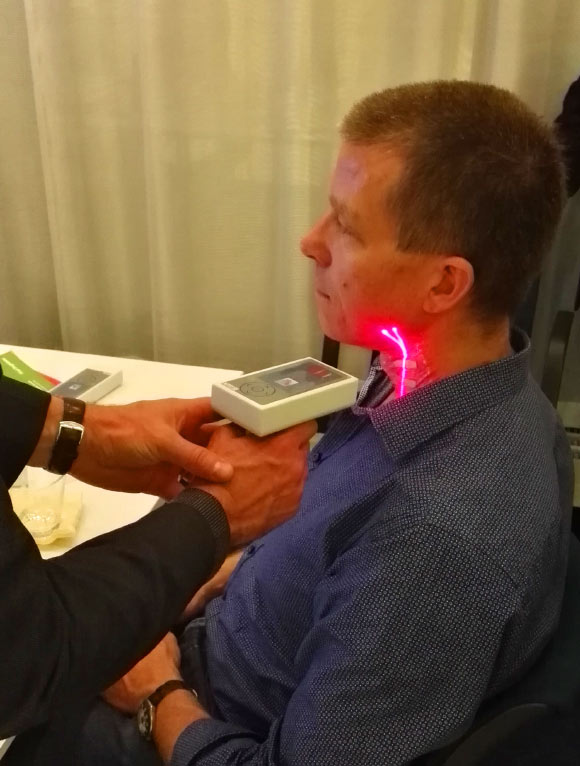A team of European researchers has developed a prototype of a compact multi-laser-beam device that can read your heart’s vital signs like a supermarket barcode reader can scan items at the checkout, allowing a general practitioner to diagnose even preclinical patients for the early onset of a disease.
Cardiovascular disease can be identified using a number of medical tools, including cardiac biomarkers, cardiac catheterization, chest x-ray, electrocardiogram, Holter monitoring, and cardiac MRI.
However, because these tools are complicated or expensive, routine early forecasting of cardiovascular disease is impossible in large populations.
The new diagnostic scanner can read your heart’s vital signs with one click of a button.
Using a measurement technique called ‘laser Doppler vibrometry,’ the scanner builds up a ‘vibration map’ of the chest and heart area, which can highlight the tell tale signs of cardiovascular disease, such as plaque build-up, arterial stiffness, arterial stenosis or heart dyssyncrony.
“Our device employs the latest photonics technology, allowing a user to make measurements of the vibration characteristics of the heart without even touching it,” said Dr. Mirko de Melis, coordinator of the EU project CARDIS (CARdiovascular disease Detection with Integrated Silicon Photonics).
“A stiff artery creates a faster pulse pressure from the patient’s beating heart. By measuring the ‘pulse wave velocity,’ we can assess the stiffness of the arteries using light and make informed judgments, long before the onset of cardiovascular disease.”
“The screening of potential sufferers, who are in their early 40s, would delay the onset of the condition by 5-10 years,” Dr. De Melis added.
“Assuming a sufferer would comply with the health advice given and adopted a change in lifestyle, this device allows the medical professional to halt or even reverse cardiovascular disease.”
The CARDIS researchers believe the key to the success of a mass screening program at the general practitioner -patient level are the inexpensive and portable nature of the new laser scanner.
“Our device would be cheap, easy to use and extremely effective,” Dr. De Melis said.
“With cost of an echocardiographer anything above EUR 100,000, and an arterial tonometer at EUR 5,000-6,000, the CARDIS scanner would be reasonably priced at around EUR 1,500.”
“However, it is the potential savings on our health services caused by the early diagnosis and prevention of cardiovascular disease that will be the most rewarding.”
The researchers presented their preliminary results recently at the Optics in Cardiology Conference 2017 in Rotterdam, the Netherlands.
_____
Soren Aasmul et al. Towards a compact multi-laser-beam device for cardiovascular screening. Optics in Cardiology 2017








